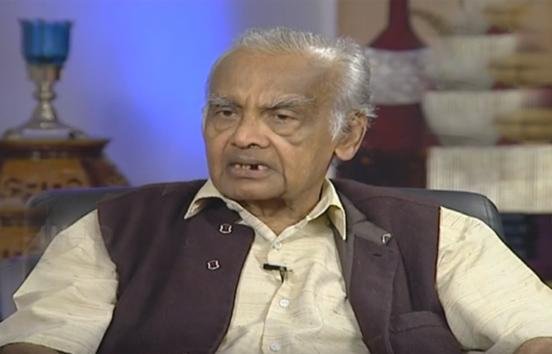Pune, March 5: PK Nair, the founder and director of Pune-based National Film Archive of India whose passion and dedication for preserving movies led to the setting up of the NFAI, passed away today after a brief illness.
Nair, 83, breathed his last in a city hospital where he was admitted for old age-related ailments on February 22, hospital sources said.
He is survived by two sons and a daughter.
Fondly called the ‘celluloid man’ of Indian film industry, Paramesh Krishnan Nair carved a niche for himself as a pioneering archivist who founded the National Film Archives of India (NFAI) to preserve for posterity the country’s cinematic heritage.
Hoping to build a film career, he came to Mumbai in 1953 after graduating from the Kerala University. He worked in association with veterans of the time like Mehboob Khan, Bimal Roy and Hrishikesh Mukherjee.
However, later he turned his focus to the academic side of cinema and became an assistant film curator of Pune’s Film and Television Institute of India (FTII) in 1965.
It was out of his passion for movies and deep knowledge of Indian film industry that the NFAI was set up. As part of this process, he travelled extensively abroad, including Europe, America and the then Soviet Union.
After starting his quest for films as a research assistant at the FTII, Nair founded NFAI in 1964 which he built brick-by-brick with acquisition of rare films prints and served as its director for a decade.
Like a haunted man consumed by the cause dear to his heart, Nair acquired over 12,000 films, including 8,000 Indian movies, which he preserved in NFAI.
He avidly screened and watched the old films in the NFAI’s mini-theatre which he could recount reel by reel with its contents.
NFAI’s present director Prakash Magdum paid tributes to Nair, saying his contribution to the archives was immense.
“He took films to the common man and encouraged formation of film societies to promote appreciation of cinema”, he said.
A notable feature of his work was the nine silent movies made in India which he acquired and archived notwithstanding the ravages of time that had taken toll on the film prints.
These included “Raja Harishchandra” and “Kalia Mardan” made by father of Indian film industry Dadasaheb Phalke.



























